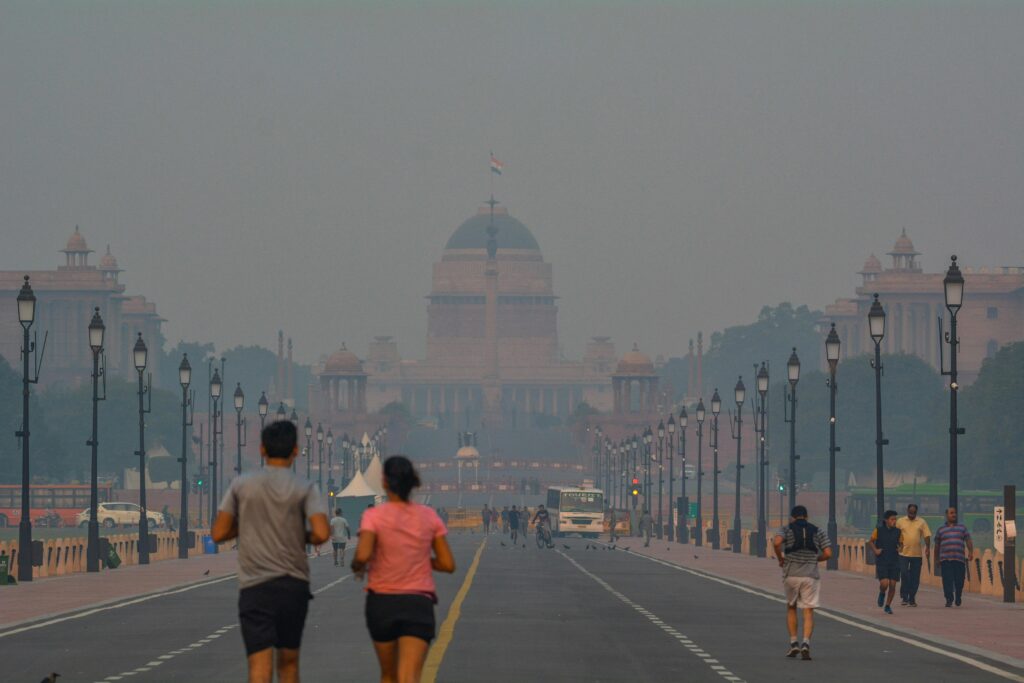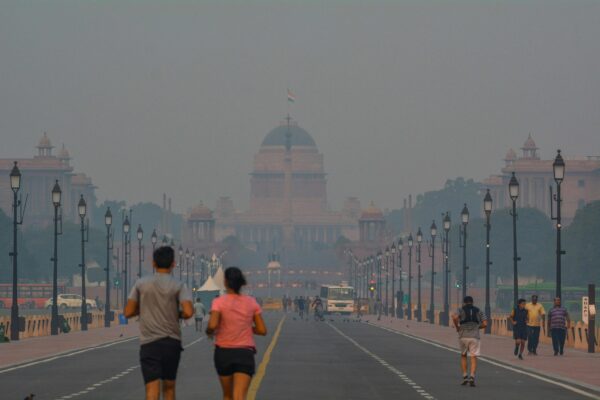Delhi Air Quality Crisis: 10 Smart Ways to Protect Your Health
Delhi, India’s bustling capital, has become infamous for its worsening air quality, especially during winter. The Delhi air pollution crisis has reached alarming levels, with the Air Quality Index (AQI) frequently crossing 400—classified as severe. Smog, vehicular emissions, and crop stubble burning combine to create toxic air that endangers millions of lives.
If you live in or around Delhi, protecting your health from polluted air isn’t just important—it’s essential. Here are 10 smart ways to safeguard yourself and your family from the health hazards of Delhi’s air pollution.
1. Monitor the Air Quality Index (AQI) Daily
Before stepping out, always check the air quality level in your area. Use apps like SAFAR, AQI India, or AirVisual to track real-time pollution data.
👉 Tip: Avoid outdoor activities when the AQI exceeds 200.

2. Wear an N95 or N99 Mask
Not all masks are effective against pollution. Use N95 or N99 certified masks that can filter out harmful particulate matter (PM2.5 and PM10).
👉 Avoid cloth or surgical masks—they don’t block fine pollutants.
3. Keep Your Indoor Air Clean
Indoor air can also be polluted. Invest in a HEPA air purifier to keep your home environment safe. Keep windows and doors closed during high-smog hours.
👉 Use natural air purifiers like Aloe Vera, Snake Plant, or Areca Palm for added freshness.
4. Limit Outdoor Exposure
Pollution levels are typically highest during early mornings and late evenings. Try to stay indoors during these times, and if you must go out, wear a protective mask and avoid heavy physical activity outdoors.
5. Strengthen Your Immune System
Pollution weakens your lungs and immune system. Strengthen your body with a healthy diet rich in vitamin C, antioxidants, and omega-3 fatty acids.
👉 Eat foods like oranges, turmeric, spinach, and walnuts to boost immunity naturally.
6. Stay Hydrated
Drinking enough water helps flush toxins from your body. Include herbal teas and warm water to keep your respiratory system clear and hydrated.
7. Practice Indoor Workouts
Instead of jogging outdoors, switch to indoor exercises like yoga, aerobics, or using a treadmill. This helps you stay fit without inhaling polluted air.
8. Avoid Smoking and Secondhand Smoke
Cigarette smoke worsens lung function and increases vulnerability to air pollution. Avoid smoking and stay away from areas where others smoke.
9. Maintain Clean Surroundings
Avoid burning garbage or leaves—it contributes to local air pollution. Participate in community drives to plant trees and promote eco-friendly living.
10. Seek Medical Help for Breathing Problems
If you experience persistent cough, chest tightness, or breathing difficulty, consult a doctor immediately. Children, pregnant women, and the elderly are more vulnerable to pollution-related health issues.
Causes of Delhi’s Air Pollution
- Vehicular emissions from over 10 million vehicles
- Crop residue burning in neighboring states
- Industrial emissions and construction dust
- Firecrackers during festivals
- Weather conditions trapping pollutants near the surface
Health Effects of Air Pollution
- Respiratory diseases like asthma and bronchitis
- Eye irritation and throat infections
- Increased risk of heart disease and stroke
- Weak immune system and fatigue
The Delhi air quality crisis is not just a seasonal issue—it’s a public health emergency. While government policies and large-scale actions are necessary, personal precautions can make a big difference in reducing your exposure. Follow these 10 smart safety tips to protect your health and your loved ones.
Together, we can breathe cleaner, healthier air.
FAQs
Q1: Why is Delhi’s air quality so poor in winter?
A: During winter, low wind speeds, temperature inversion, and crop burning in nearby states trap pollutants, worsening smog levels in Delhi.
Q2: Which mask is best for Delhi pollution?
A: N95 or N99 masks are most effective as they filter fine particulate matter (PM2.5 and PM10).
Q3: Can indoor plants really purify the air?
A: Yes, plants like Snake Plant, Aloe Vera, and Peace Lily can help absorb toxins and improve indoor air quality.
Q4: What is a safe AQI level for outdoor activity?
A: AQI below 100 is generally considered safe for most people. Avoid outdoor workouts if AQI exceeds 200.
Q5: How can I protect children from air pollution?
A: Keep them indoors during peak smog hours, ensure they wear proper masks, and use an air purifier in their rooms.



